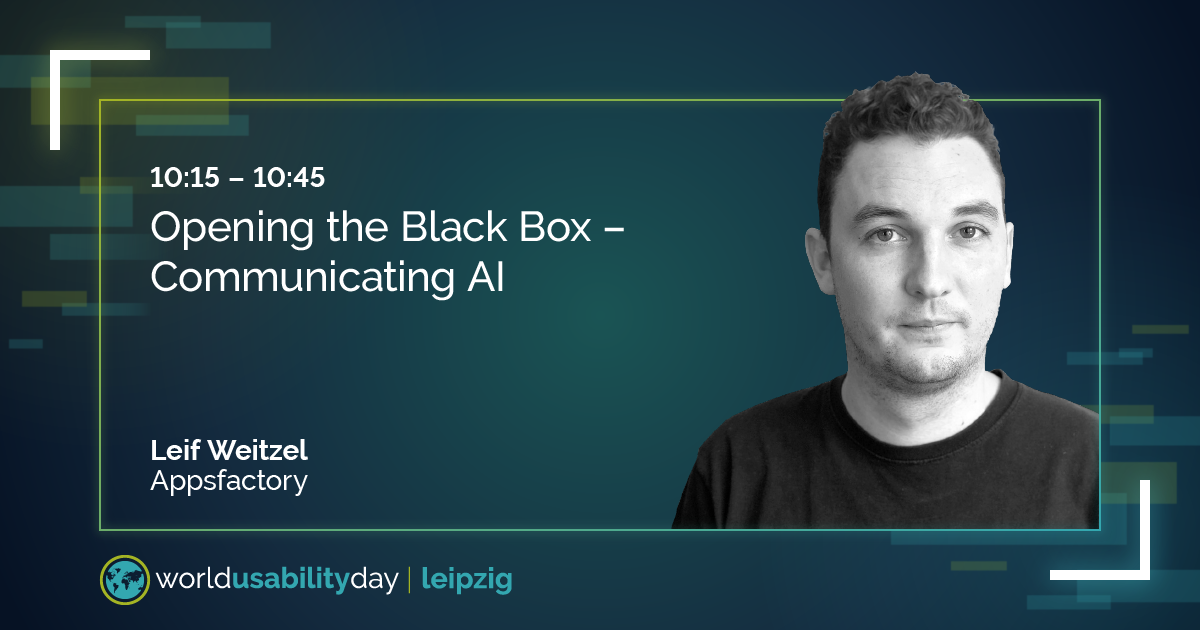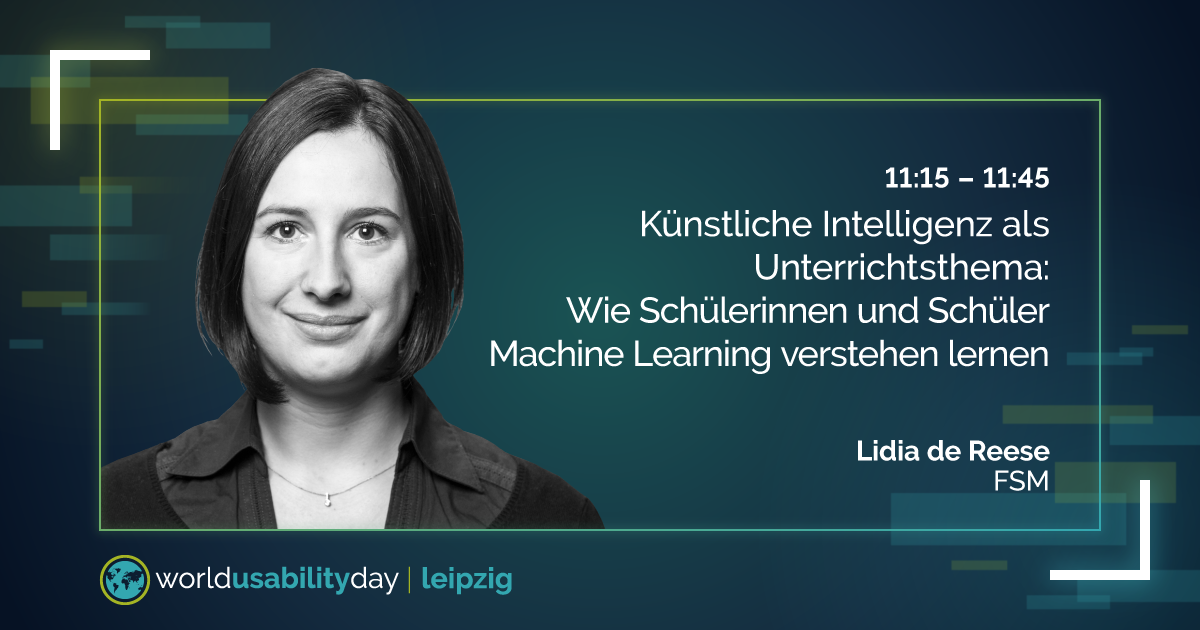World Usability Day Leipzig 2020
12/11/2020 – HUMAN-CENTRED ARTIFICIAL INTELLIGENCE
Remote

89 visitors
4 lectures
Human-centred artificial intelligence
There’s a buzzword going around right now: artificial intelligence (AI).
But what impact will this concept have on humans? In which areas will AI shape our everyday lives and what impact will it have on the working world of user-centred design?
Today, AI is already part of many production chains and company processes. But to what extent does it influence the way people interact with systems and what new challenges does it pose for them?
In other countries, AI is already used to diagnose illnesses or assess behaviours. But to what extent does this change the need for operating concepts or patterns of interaction?
AI is already used to develop new technologies and used by user-centred designers. But what innovations will it bring and where could dangers arise?
And of course, it’s not only exciting to look at the way things are now: Where will the journey lead? Will AI shake up the field of user-centred design? Will it make our day-to-day working lives easier or will it replace us? What are the ethical, legal or technological limitations of AI?
WUD 2020 focussed on these diverse questions with the theme of Human-Centred AI.
A look back at the programme
Including presentation slides and videos
| 9:00 |
9:15 – 10:15
Keynote Larissa Koch, Frank Stumpf, Christoph Specht
|
||
| 10:15 |
10:15 – 10:45
Opening the Black Box – Communicating AI Leif Weitzel
|
||
| 10:45 |
10:45 – 11:15
Methoden für die menschzentrierte Gestaltung von KI (Methods for human-centred AI design) Manuel Kulzer
|
||
| 11:15 |
11:15 – 11:45
Künstliche Intelligenz als Unterrichtsthema: Lidia de Reese
|
||
| 11:45 |
11:45 – 12:15
Künstliche Intelligenz für den Menschen – und nicht gegen ihn (Artificial intelligence for humans – not against them) Frank Ortmeier
|
||
-
9:15 – 10:15
Keynote
Larissa Koch, Frank Stumpf, Christoph Specht -
10:15 – 10:45
Opening the Black Box – Communicating AI
Leif Weitzel -
10:45 – 11:15
Methoden für die menschzentrierte Gestaltung von KI (Methods for human-centred AI design)
Manuel Kulzer -
11:15 – 11:45
Künstliche Intelligenz als Unterrichtsthema: Wie Schülerinnen und Schüler Machine Learning verstehen lernen (Artificial intelligence as a teaching subject: how students learn to understand machine learning)
Lidia de Reese -
11:45 – 12:15
Künstliche Intelligenz für den Menschen – und nicht gegen ihn (Artificial intelligence for humans – not against them)
Frank Ortmeier













